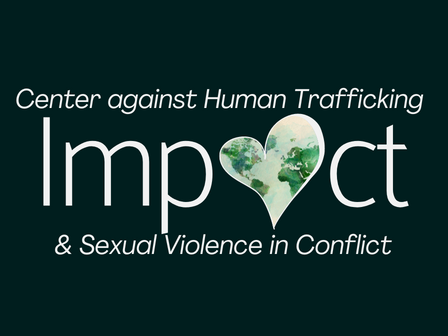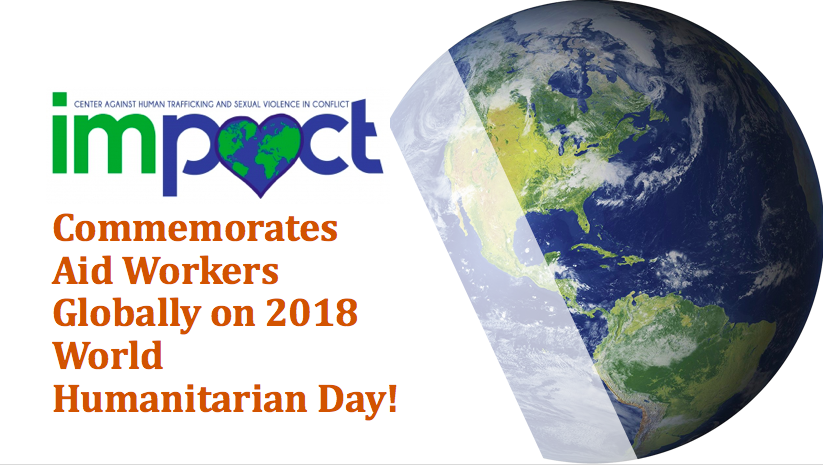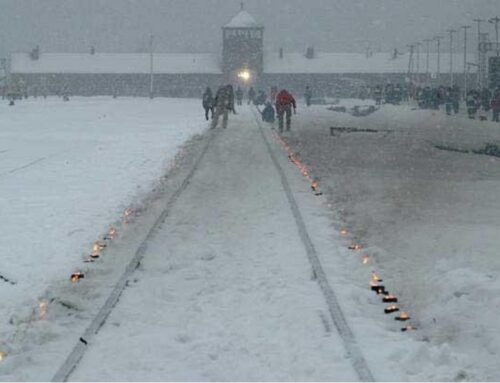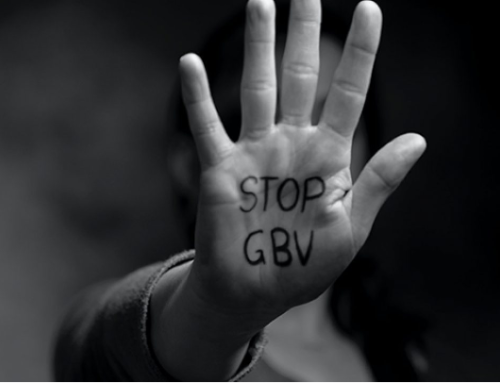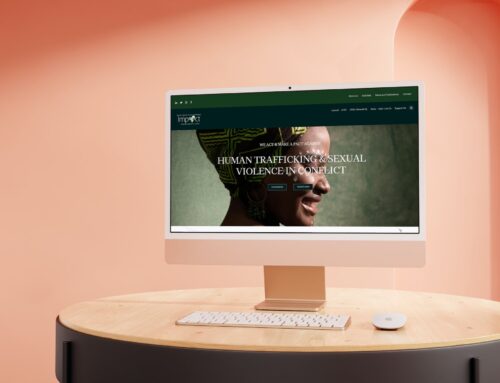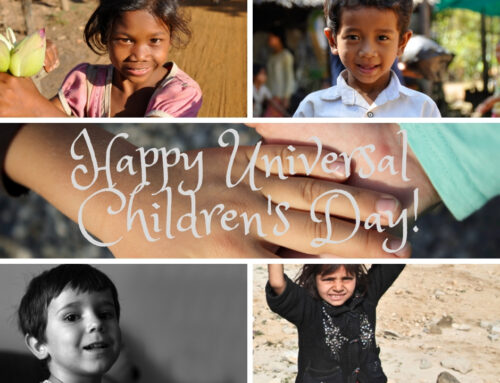By Chiun Min Seah
On World Humanitarian Day, we honor aid workers who risk their lives and welfare to carry out humanitarian services, and to mobilize assistance for individuals affected by disasters and conflicts worldwide. As IMPACT aims to be a catalyst for discussing perceptions about human trafficking and conflict-related sexual violence and improving the protection of victims, the violence that these humanitarians face in the field must be confronted. It must be noted from the outset that aid workers can be both the victims and perpetrators of horrendous atrocities and abuses.
A humanitarian worker manages and develops emergency response programs within designated geographical areas that have been subjected to war, natural disasters or other environmental or developmental problems. Their responsibilities mostly involve front-line operations, planning, monitoring, administrating, and implementing projects which are dependent on the nature of the situation and emergency, sometimes even geopolitical and economic circumstances. Working as a humanitarian is “extremely challenging” and many “live under harsh conditions”. However, thereality of their obstacles in the field is regrettably not limited to the above conditions.
There have been allegations and reports about horrendous violence against aid workers who were killed, wounded, kidnapped, tortured, sexually harassedand abused (including rape and gang rape). The perpetrators of violence against aid workers seem to be predominantly from national level non-state armed groups (57%), followed by 24% for state actors, and 7% of global non-state armed groups. One female aid worker recounted that a soldier threatened to kill her if she did not “open her legs”. This occurred only one kilometer away from a United Nations base in Juba, South Sudan, yet UN peacekeepers paid no attention to calls for help. In 2016, Humanitarian Women’s Networkconducted a self-report survey and more than 1,000 female aid workers who respondedwere subjected to discrimination, harassment, and abuse. Almost half of these workers experienced unwanted and persistent sexual advances by their colleagues,40% were sexually violated by their colleagues, and more than 20% of that were committed by a superior. These crimes go unreported due to “fear of professional consequences, lack of trust in the system, or an absence of mechanism to report”, and even complete non-intervention by their employers. The majority of cases recorded against male humanitarians were committed by male aid workers against gay men or men who were seen by perpetrators as effeminate. The accurate numbers of male victims are still unknown.
There is also another side of the humanitarian and peacekeeping world that we have to delve into; sexual exploitation and abuse by the very people who are meant to do the protecting, aid workers and peacekeepers themselves. The forms of sexual exploitation include systematic human trafficking into prostitution where aid personnel commit these crimes rather than combat them. Megan Nobert, a respectable humanitarian and founder of Report the Abuse, depicted her sexual assault experiencewhere the perpetrator was a fellow aid worker working for a UN supplier. Her story is sadly not an exception amongst aid workers. In recent years, many reports of girls and women who endured sexual violence by peacekeepers in war-torn countries have also surfaced. For instance, an 11-year old Congolese girl was raped by two peacekeepers and became a mother of two children by the age of 14. Another example included a teenage boy who was gang-raped by Uruguayan peacekeepers who filmed the assault. These experiences are grimly emblematic of the underbelly of U.N. peacekeeping and the organization as a whole. Some of these supposed protectors have been revealed to also be involved in human trafficking, especially child sexual abuse and prostitutions.
Various journalism organizations like VICE Media and Associated Press have conducted in-depth investigations and Al Jazeera published a report on this issue. The world is starting to openly acknowledge the existence of sexual violence amongaid workers (both as victims and perpetrators). It is high time to turn the attention towards addressing this issue for prevention and reparations for victims. Prestigious humanitarian organizations such as the UN, OXFAM, and Save the Children are among those who were listed for historical sexual harassment and misconduct allegations. These organizations have taken formal actions against these sexual assault allegations but there is still a lot left to do.
In a globalized world where at least 40 wars are active, we must at least be able to confidently believe that the aid workers who are supposed to do the protecting are people we can wholly trust with our safety. They must not be wolves in sheep’s clothing who oppress the weak. It is just as important to address sexual violence against humanitarian workers. Aid workers are amongst those who can truly make a positive difference as they are the ones who are pragmatically providing help and support towards victims in disasters and wars. These rationales underpin the need for zero tolerance on sexual exploitation by and against humanitarians with utmost transparency in how allegations are effectivelydealt with. IMPACT will not condone any acts which directly and indirectly cause sexual violence and human trafficking in both conflict and post-conflict settings. Let us join hands in achieving IMPACT’s vision for a world that is free of violence and a world where human trafficking and sexual violence during conflict are a thing of the past!
